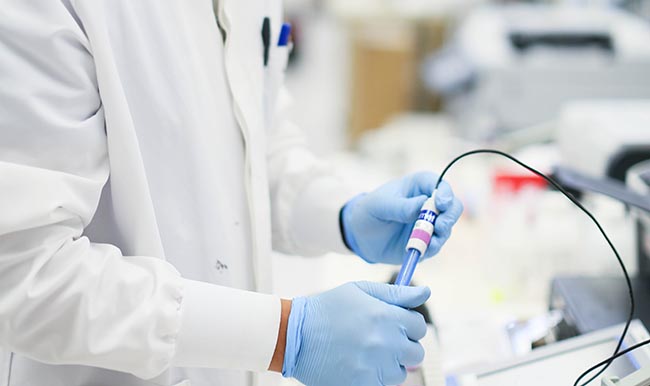 The Ebola Virus Disease (EVD) is an infectious disease that has rapidly spread in parts of West Africa. In recent weeks, cases of infected individuals have been reported in the United States. A consequence of the high profile of the virus has been the heightened need for workplaces to react appropriately in order to help ensure the health and safety of their employees.
The Ebola Virus Disease (EVD) is an infectious disease that has rapidly spread in parts of West Africa. In recent weeks, cases of infected individuals have been reported in the United States. A consequence of the high profile of the virus has been the heightened need for workplaces to react appropriately in order to help ensure the health and safety of their employees.
The majority of workplace drug testing is performed on urine specimens collected at collection sites like our Quest Diagnostics Patient Service Centers (PSCs). In a statement released on October 23, Quest Diagnostics assures that our priority is the health and safety of our employees, donors and patients.In an abundance of caution, we will not collect specimens from suspected Ebola patients at our Patient Service Centers and in-office phlebotomy sites. We will not accept or process specimens from known or suspected Ebola patients. Once a suspected Ebola patient is confirmed to be Ebola-negative, specimens from that individual may be sent to Quest Diagnostics.
For those specimen types that are self-collected at the place of employment like oral fluid, the risk of transmission of the Ebola virus is reported to be minimal by health authorities. Earlier this month the World Health Organization stated that although contact with saliva and tears may carry some risk, studies implicating these bodily fluids were extremely limited in sample size, and as such the science is inconclusive. Furthermore, in various reports, the presence of the Ebola virus in saliva was found most frequently in patients at severe stages of the illness, thus, it appears to be highly unlikely that an individual would be able to present themselves for drug testing. In short, the risk to employees of our oral fluid drug testing clients is extremely low. In all cases, it is imperative that proper collection procedures, in which the donor is the only individual in contact with the sample, are consistently applied. That said, while the risk of transmission from collecting oral fluid drug testing specimens may be low, it is our recommendation that our employer clients not collect specimens from known and suspected Ebola patients. As stated above, we will not accept or process these specimens in our laboratories.
Once a suspected Ebola patient is confirmed to be Ebola-negative, specimens from that individual may be sent to Quest Diagnostics. Learn more about how we are handling the Ebola outbreak by reviewing our Frequently Asked Questions.
For more information about drug testing, visit our website.
 Your Privacy Choices
|
Privacy Notices
|
Terms
|
Language Assistance / Non-Discrimination Notice | Asistencia de Idiomas / Aviso de no Discriminación | 語言協助 / 不䈚視通知
Your Privacy Choices
|
Privacy Notices
|
Terms
|
Language Assistance / Non-Discrimination Notice | Asistencia de Idiomas / Aviso de no Discriminación | 語言協助 / 不䈚視通知
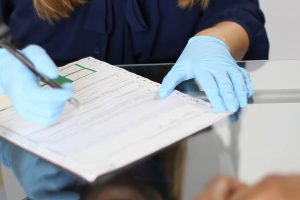

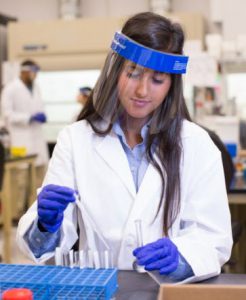



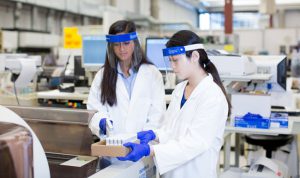
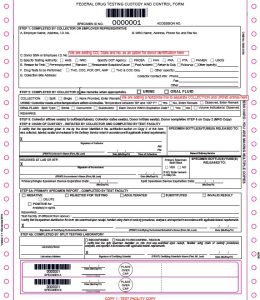
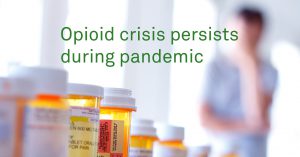

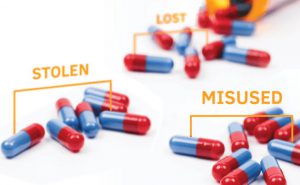


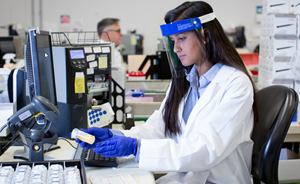





The majority of workplace drug testing is performed on urine specimens collected at collection sites like our Quest Diagnostics Patient Service Centers (PSCs). In a statement released on October 23, Quest Diagnostics assures that our priority is the health and safety of our employees, donors and patients.In an abundance of caution, we will not collect specimens from suspected Ebola patients at our Patient Service Centers and in-office phlebotomy sites. We will not accept or process specimens from known or suspected Ebola patients. Once a suspected Ebola patient is confirmed to be Ebola-negative, specimens from that individual may be sent to Quest Diagnostics.
For those specimen types that are self-collected at the place of employment like oral fluid, the risk of transmission of the Ebola virus is reported to be minimal by health authorities. Earlier this month the World Health Organization stated that although contact with saliva and tears may carry some risk, studies implicating these bodily fluids were extremely limited in sample size, and as such the science is inconclusive. Furthermore, in various reports, the presence of the Ebola virus in saliva was found most frequently in patients at severe stages of the illness, thus, it appears to be highly unlikely that an individual would be able to present themselves for drug testing. In short, the risk to employees of our oral fluid drug testing clients is extremely low. In all cases, it is imperative that proper collection procedures, in which the donor is the only individual in contact with the sample, are consistently applied. That said, while the risk of transmission from collecting oral fluid drug testing specimens may be low, it is our recommendation that our employer clients not collect specimens from known and suspected Ebola patients. As stated above, we will not accept or process these specimens in our laboratories.
Once a suspected Ebola patient is confirmed to be Ebola-negative, specimens from that individual may be sent to Quest Diagnostics. Learn more about how we are handling the Ebola outbreak by reviewing our Frequently Asked Questions.
For more information about drug testing, visit our website.